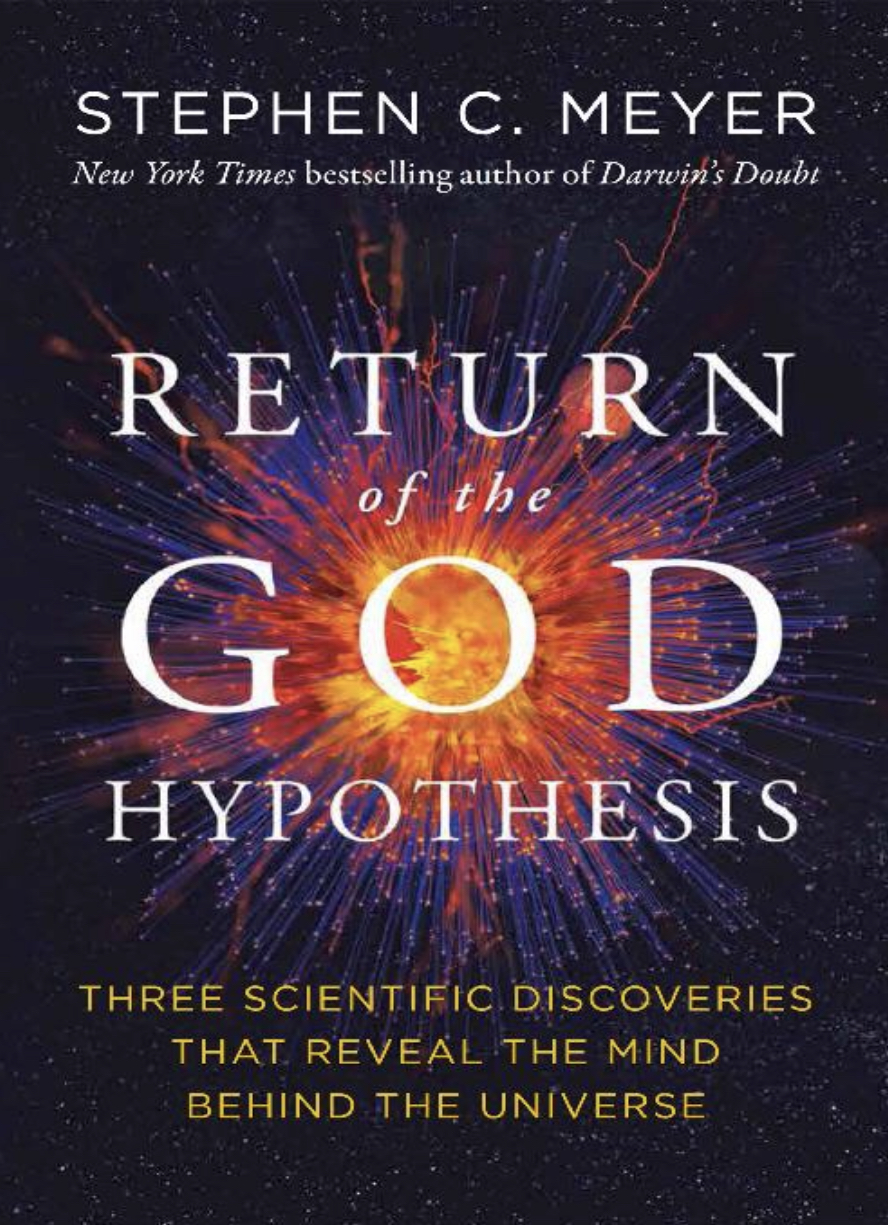
Table Of Contents
Prologue Part I: The Rise and Fall of Theistic Science 1: The Judeo-Christian Origins of Modern Science 2: Three Metaphors and the Making of the Scientific World Picture 3: The Rise of Scientific Materialism and the Eclipse of Theistic Science
Part II: Return of the God Hypothesis 4: The Light from Distant Galaxies 5: The Big Bang Theory 6: The Curvature of Space and the Beginning of the Universe 7: The Goldilocks Universe 8: Extreme Fine Tuning—by Design? 9: The Origin of Life and the DNA Enigma 10: The Cambrian and Other Information Explosions
Part III: Inference to the Best Metaphysical Explanation 11: How to Assess a Metaphysical Hypothesis 12: The God Hypothesis and the Beginning of the Universe 13: The God Hypothesis and the Design of the Universe 14: The God Hypothesis and the Design of Life
Part IV: Conjectures and Refutations 15: The Information Shell Game 16: One God or Many Universes? 17: Stephen Hawking and Quantum Cosmology 18: The Cosmological Information Problem 19: Collapsing Waves and Boltzmann Brains
Part V: Conclusion 20: Acts of God or God of the Gaps? 21: The Big Questions and Why They Matter Acknowledgments Bibliography Notes Credits and Permissions Index
A book for kicking in the teeth of the atheists , Stephen Meyer’s Return Of The God Hypothesis throws down the gauntlet with regards to three areas wherein the enemies of God have anchored their diabolical grimoires and resultant corrupt industries and institutions that purport to pin down the mysterium tremendum that is being .
From the big-bang right through to Neo-darwinism , Meyer shows definitively , using the established orthodox data itself , that their model of the universe is not only impossibly unlikely , but entirely absurd .
Antagonistic pseudo-intellectual cunts and militant atheists like Richard Dawkins and his ilk now find themselves with their backs against the wall , a second away from execution . Even leading new atheist thinkers such as Peter Atkins have laid their shallowness bare in Oxford debates against the dignified Meyer :
Oxford Debate: Stephen Meyer and Peter Atkins
Quote from book: “In my book Signature in the Cell, I perform updated calculations of the probability of the origin of even a single functional protein or corresponding functional gene (the section of a DNA molecule that directs the synthesis of a particular protein) by chance alone. My calculations are based upon recent experiments in molecular biology establishing the extreme rarity of functional proteins in relation to the total number of possible arrangements of amino acids corresponding to a protein of a given length. Taking that and several other relevant independent factors into account, I show that the probability of producing even a single functional protein of modest length (150 amino acids) by chance alone in a prebiotic environment stands at no better than a “vanishingly small” 1 chance in 10(to the)164, an inconceivably small probability. To put this number in perspective, recall that physicists estimate that there are only 10(tothe)80 elementary particles in the entire universe.”
Unlike me , dear reader , Stephen Meyer does not taunt and berate his intellectual opponents , but instead offers an extremely conscientious , scholarly method of discourse and composition . The outcome is , therefore , even more devastating to the other side .

Comments
No comments yet. Be the first to react!